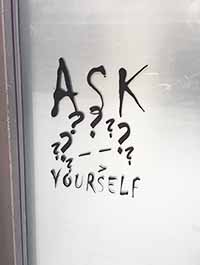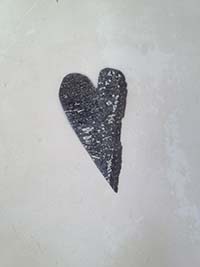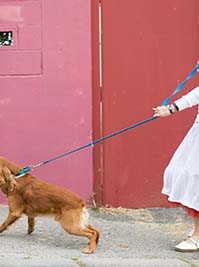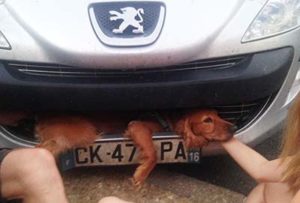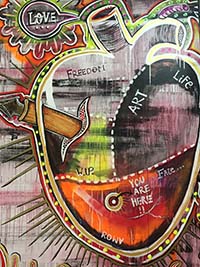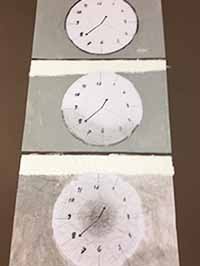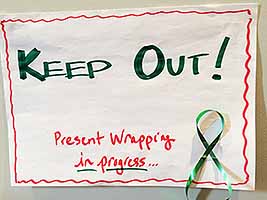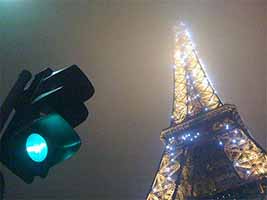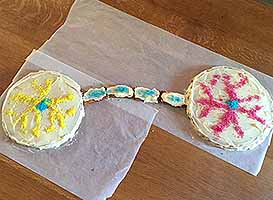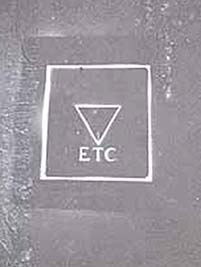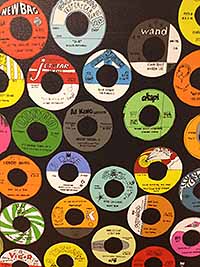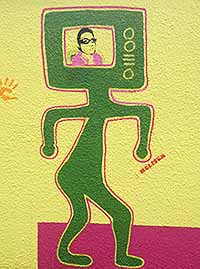Driving Lessons
They walked toward the car, the two of them, long-legged. Buddy-roo opened the door to the driver’s side of the car, De-facto, the passenger’s. I didn’t move from my chair in the sun, relishing the state of leisure I only experience here at the country house. I looked up from my book to watch them. The engine started. Then turned off. Brake light on. Off again. He must have been talking her through all the dials on the dashboard, the steps of starting a car. Testing the clutch. The brakes. I’m glad she will learn to drive with a standard. There is a joy to driving a manual shift, controlling the gears, racing the car at your pace, something unknown to a generation of drivers taught on automatics, let alone self-driving cars. Will my children’s children never need to drive themselves? Will my children have children? Will I ever see them at the wheel of a car, if there even is a wheel anymore?
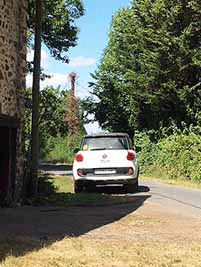
The tutorial Buddy-roo was receiving seemed to last forever. I wanted to go back to reading – I was in one of those books so nourishing you hate to put it down but you discipline yourself to do so anyway because you want it to last – but I waited because I wanted to witness her departure. Symbolic, somehow, that first moment that portends her inevitable independence. Brake lights. Ignition. Slowly the car slipped forward, on to the road. She got the clutch right the first time. Then I heard the switch to 2nd gear. Nice, Buddy-roo. Drive away.
They are full-blown teenagers. Buddy-roo is fourteen. Short-pants just turned seventeen last week. It was my 15th fiesta, and I dutifully left Pamplona on the day before her birthday, as I do every year, to celebrate it with her. Once it pained me to leave my drunken friends before the massive party was finished – they had two more days of delirium. Lately, I’m ready to shed my whites and leave the boom-boom-boom, to return to the family, and to the country house, and to the rhythms of our every July.
They aren’t as rotten as we suspected, our teenage girls. When they were little, when I started writing this blog, De-facto and I would whisper across our pillows about how sweet and adorable they were, and how before you know it they’d be rotten teenagers.
Before you know it – starts the mantra of parental advice we’ve heard from everyone. When they were babies people would tell us to enjoy them while we could, before you know it they’ll grow up. When they were toddlers, unsolicited counsel from anyone and everyone: Enjoy it, before you know it they’ll be all grown up. Just last month, learning that Short-pants is taking SATs, a friend asked if I was ready for her to go away to college. “Before you know it, you’ll have an empty nest.”
But I am not afraid of this dreaded empty nest. I’m more curious about what happens to them when they grow up and go away. Of course I will miss them, their affection, their laughter, their company. But there will be so many things I will get to do again. I look forward to fewer interruptions. My work these days takes me to interesting and exotic places, from which I am always compelled to return quickly. When I am gone for more than two weeks, something shifts in the household. It’s too long for a mother to be gone. They need some point of contact with me. It’s the same when De-Facto is on a trip that lasts longer than a fortnight. They get restless, short-fused.  Not to mention being the only parent for too long takes its toll. It is much nicer to share the responsibilities. You know, you can say things like, “ask your father.”
Not to mention being the only parent for too long takes its toll. It is much nicer to share the responsibilities. You know, you can say things like, “ask your father.”
I realize, too, that blogging through their childhood – until recently at least – kept me very present. I noticed things about them, paid attention to capture detail. I wrote down the things they said and did, recorded their everyday stories. Their childhoods have not passed too quickly. I’ve slowed them down by observing, living it twice by writing it down.
These days it’s so very interesting, what they talk about, what they’re discovering, who they’re becoming. One daughter stays close, stands at the foot of the bed, lingering, silently soliciting more contact. We play cards, words games. We read books side-by-side. We read a book together, taking turns reading aloud to each other. She has a few friends, but cares to see them only at school. She’s a homebody, preferring to pass her time at home with her father and me. Or alone in her room, reading or listening to science podcasts.
The other daughter craves our attention no less, but on her own terms. She wants us to seek her out, to do what she loves to do. To talk about Minecraft, or her favorite YouTubers, or the obsessive crush she has on a K-pop star. I’m glad that she wants to tell me about all of it, careful to be authentic in my appreciation. I remember, when I was a teenager, the sharp edge of a patronizing adult. That you-kids-these-days chuckle in response to something that was important to me. The things that she is interested in are important, to her, and the only way I will keep her trust, keep her talking to me about the other things that will become important to her, and to me, is to keep listening, and listening with interest. Though sometimes that is hard to do.
The day I turned sixteen I went to the DMV to take my written test to get a learner’s permit. My sister took me out for my first drive, and like my girls I started on back roads in the country, less traveled. I wove back and forth across the center line, unfamiliar with the touch of the steering wheel. That summer I took a Driver’s Ed class. The teacher, an amiable man who grunted more than he spoke, guided me through to my driving test. Once I had my license I’d drive whenever I could. If my mother ran out of milk, I’d offer to drive to the store to get more, taking the longer route, making a swing 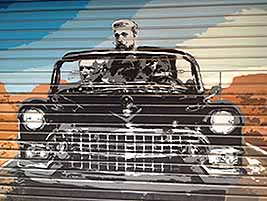 around the extra blocks of our small town, looking for friends, or for that guy I wasn’t supposed to like – he was always in his car, it seemed. He’d pass and dip his head, a sultry greeting.
around the extra blocks of our small town, looking for friends, or for that guy I wasn’t supposed to like – he was always in his car, it seemed. He’d pass and dip his head, a sultry greeting.
Driving meant I could go someplace alone, un-chaperoned, un-tethered. It was one step toward being my own person with my own life. In the summer, especially, I remember sliding into the car, the vinyl seats hot from the sun burning my thighs, bare because my cut-offs were way too short. I’d crank up the radio, singing along to Thin Lizzy’s Boys are Back in Town, cruise down the steep curvy hill from my house to the lake road, slowing to the speed limit on the stretch of road into town – speed trap, my father had warned me. I’d pick up my girlfriends, and then we’d simply drive around. In circles. Four or five girls in the car. We’d stop at a park for a while, sit on the picnic tables. Then drive some more. Stop at the pizza joint on the corner. Drive some more. Pass people we knew. Tell stories. Even in the safe circles that knotted us around the 10 blocks of our downtown, we were on our own. We were out. Without parents and older siblings. We were free.
Later, it was Short-pants’ turn to take the wheel. She is older, more practiced – De-facto started teaching her to drive last summer – but more cautious. She needs less explanation to start. Brake lights. The car starts. The car idles. She revs the engine, too hard, lurches forward. Stalls. Starts again. Idles. Try again, Short-pants. The car glides forward. No lurching this time, just a smooth departure down the lane. I hear her shift into 2nd, as she pulls out of sight. They’ll drive a kilometer or so and he’ll make her stop. Use reverse, bring the car around. Every day a bit more confidence. There are (mandatory in Europe)  driving classes ahead and tests to pass, but before you know it, she’ll be driving on her own, and driving away. And Buddy-roo won’t be far behind her.
driving classes ahead and tests to pass, but before you know it, she’ll be driving on her own, and driving away. And Buddy-roo won’t be far behind her.
And me, well, I’ll stand at the side of the road and wave. I will miss them both. But I’ll wish for them the freedom to stretch beyond the borders of our family, to carve out, for themselves, the next steps of their lives. I’ll wish for them all the freedom they need. And then, maybe, I’ll get mine, too.


